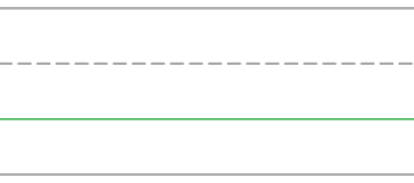The first join: in, ig, ed, eg, aw, ap, an, ar
I can correctly form the first join.
The first join: in, ig, ed, eg, aw, ap, an, ar
I can correctly form the first join.
These resources will be removed by end of Summer Term 2025.
Switch to our new teaching resources now - designed by teachers and leading subject experts, and tested in classrooms.
These resources were created for remote use during the pandemic and are not designed for classroom teaching.
Lesson details
Key learning points
- Cursive handwriting involves joining letters together.
- The letters all have a lead in starting at the baseline.
- The first join goes from the baseline to the x-height line.
- The pencil does not lift when forming the join.
- The letter w lead out "finishes with a small dip down" to aid joining.
Keywords
Join - connecting together
Lead in - the stroke or line that guides us into starting a letter
Lead out - the stroke or line that guides us to smoothly finish a letter
Baseline - the line that most letters sit on
X-height line - the line that x-height letters reach
Common misconception
Children will often want to take their pencil off to form the join.
Emphasise the flowing motion of cursive writing. The letters need to be joined together so the pencil needs to stay on the page.
To help you plan your year 3 english lesson on: The first join: in, ig, ed, eg, aw, ap, an, ar, download all teaching resources for free and adapt to suit your pupils' needs...
To help you plan your year 3 english lesson on: The first join: in, ig, ed, eg, aw, ap, an, ar, download all teaching resources for free and adapt to suit your pupils' needs.
The starter quiz will activate and check your pupils' prior knowledge, with versions available both with and without answers in PDF format.
We use learning cycles to break down learning into key concepts or ideas linked to the learning outcome. Each learning cycle features explanations with checks for understanding and practice tasks with feedback. All of this is found in our slide decks, ready for you to download and edit. The practice tasks are also available as printable worksheets and some lessons have additional materials with extra material you might need for teaching the lesson.
The assessment exit quiz will test your pupils' understanding of the key learning points.
Our video is a tool for planning, showing how other teachers might teach the lesson, offering helpful tips, modelled explanations and inspiration for your own delivery in the classroom. Plus, you can set it as homework or revision for pupils and keep their learning on track by sharing an online pupil version of this lesson.
Explore more key stage 2 english lessons from the Further study of the four joins unit, dive into the full secondary english curriculum, or learn more about lesson planning.

Content guidance
- Risk assessment required - physical activity
Supervision
Adult supervision required
Licence
Starter quiz
6 Questions



